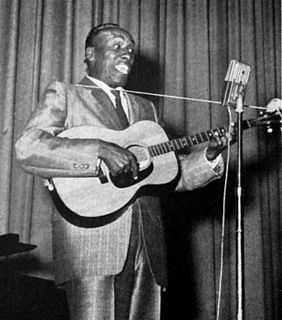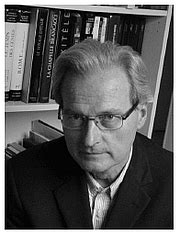A Quote by Charles Dickens
When I speak of home, I speak of the place where in default of a better--those I love are gathered together; and if that place where a gypsy's tent, or a barn, I should call it by the same good name notwithstanding.
Related Quotes
Homes should be an anchor, a safe harbor, a place of refuge, a place where families dwell together, a place where children are loved. In the home, parents should teach their children the great lessons of life. Home should be the center of one’s earthly experience, where love and mutual respect are appropriately blended.
I found that quiet place in my home that is my place of refuge. I don't care if you got kids or if you are married. You got to find that one place that is your everybody-off-limit place: unless this place is on fire, or you need to go to the emergency room, don't disturb me. You can go to this place and cleanse, meditate, let God speak to you.
My greatest concern was what to call it. I thought of calling it 'information,' but the word was overly used, so I decided to call it 'uncertainty.' When I discussed it with John von Neumann, he had a better idea. Von Neumann told me, 'You should call it entropy, for two reasons. In the first place your uncertainty function has been used in statistical mechanics under that name, so it already has a name. In the second place, and more important, no one really knows what entropy really is, so in a debate you will always have the advantage.'
I learned early on that one of the secrets of campus leadership was the simplest thing of all: speak to people coming down the sidewalk before they speak to you. I would always look ahead and speak to the person coming toward me. If I knew them I would call them by name, but even if I didn't I would still speak to them.
[T]he "home" represents the most precious human treasures, that of encounter, that of relations among people, different in age, culture and history, but who live together and together help one another to grow. For this reason, the "home" is a crucial place in life, where life grows and can be fulfilled, because it is a place in which every person learns to receive love and to give love.
Dare I speak ,to oppressed and opressor in the same voice? Dare I speak to you in a language that will move beyond the boundaries of domination- a language, that will not bind you, fence you in, or hold you? Language is also a place of struggle. The oppressed struggle in language to recover ourselves, to reconcile, to reunite, to renew. Our words are not without meaning, they are an action, a resistance. Language is also a place of struggle.
I speak English, obviously, Afrikaans, which is a derivative of Dutch that we have in South Africa. And then I speak African languages. So I speak Zulu. I speak Xhosa. I speak Tswana. And I speak Tsonga. And like - so those are my languages of the core. And then I don't claim German, but I can have a conversation in it. So I'm trying to make that officially my seventh language. And then, hopefully, I can learn Spanish.






































